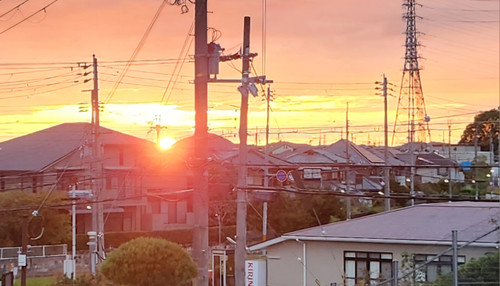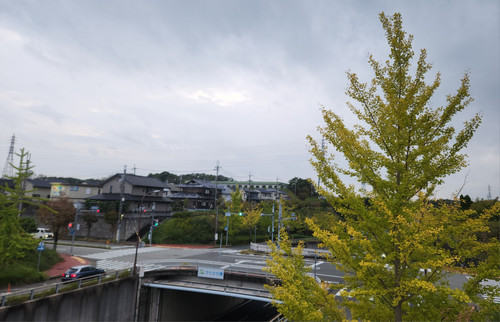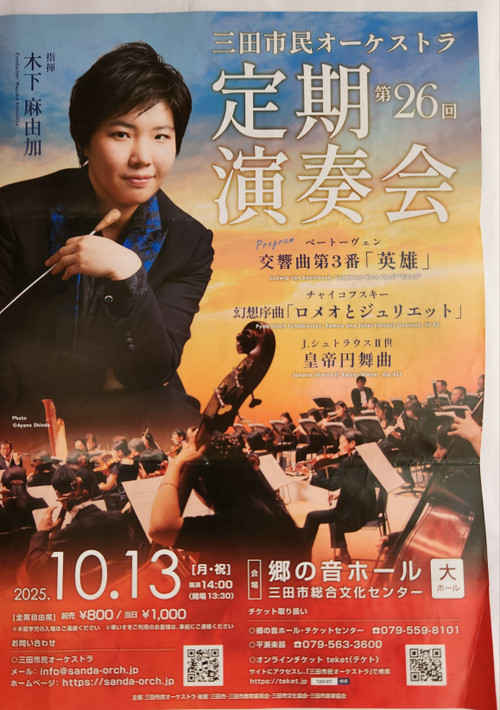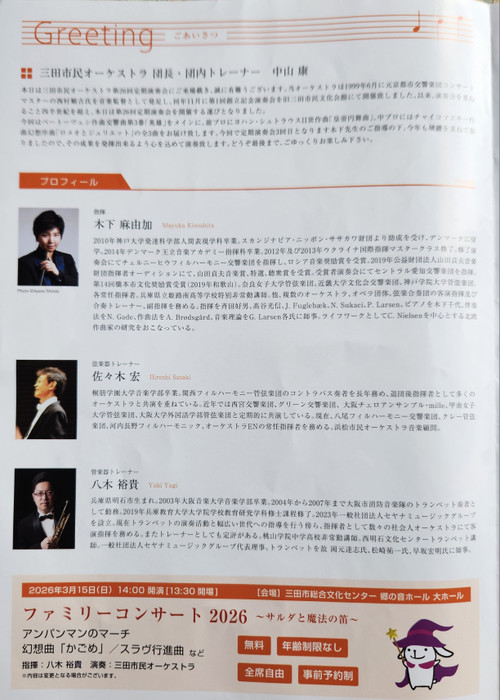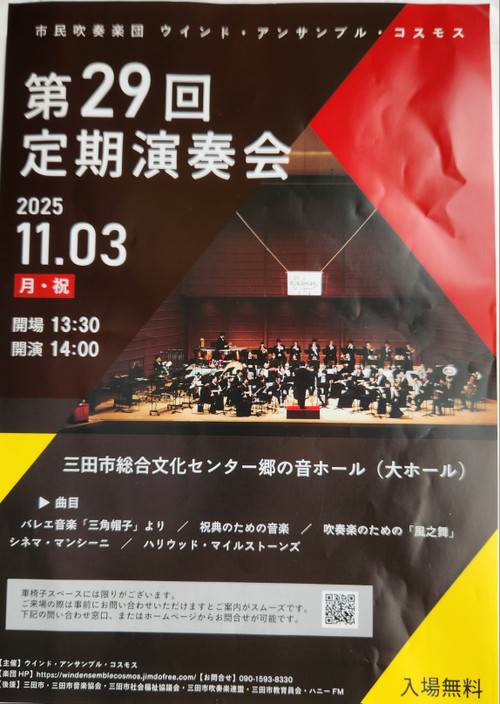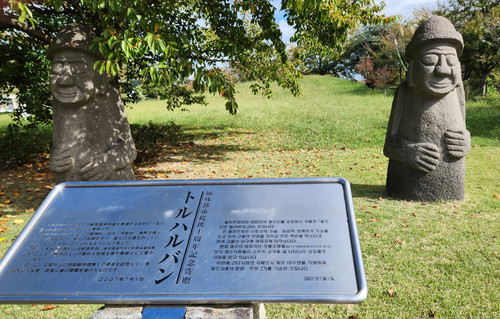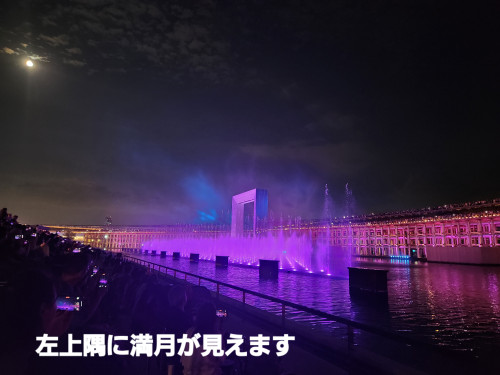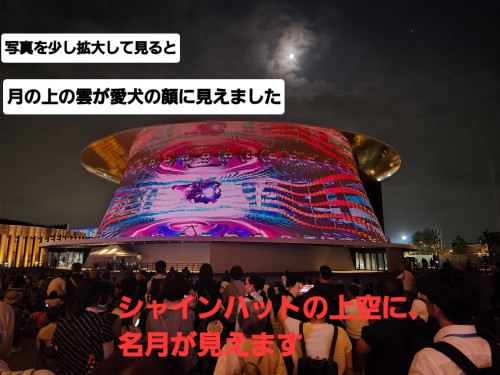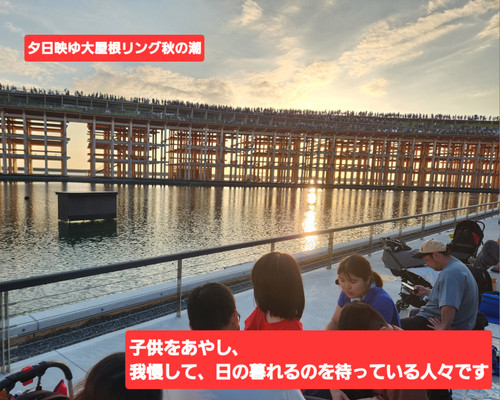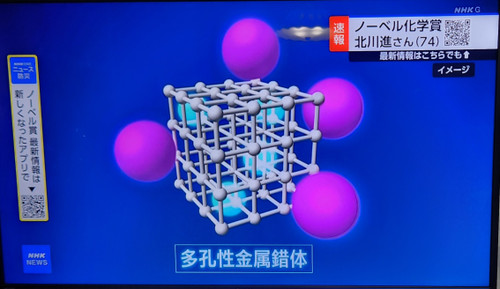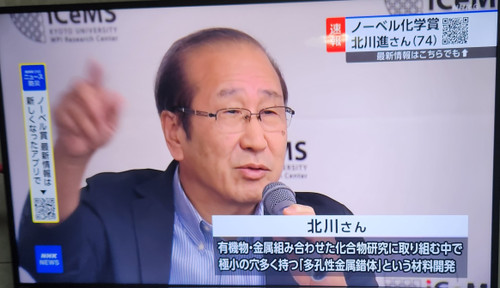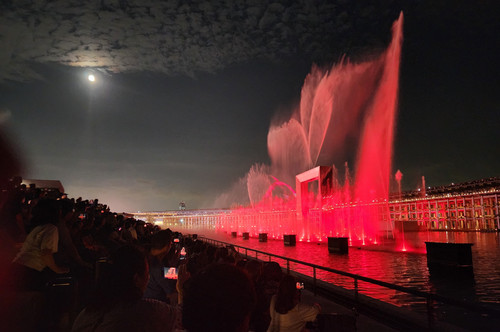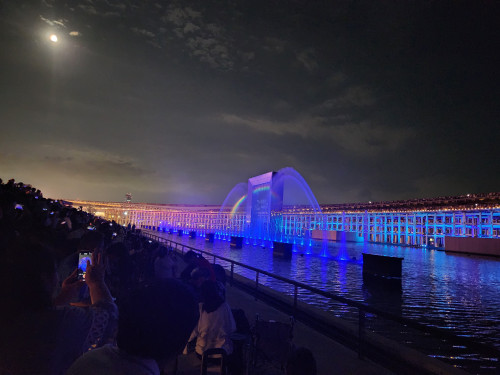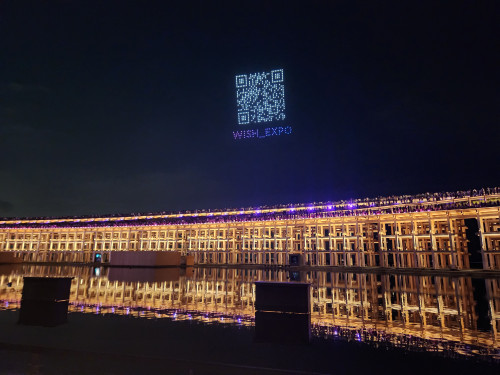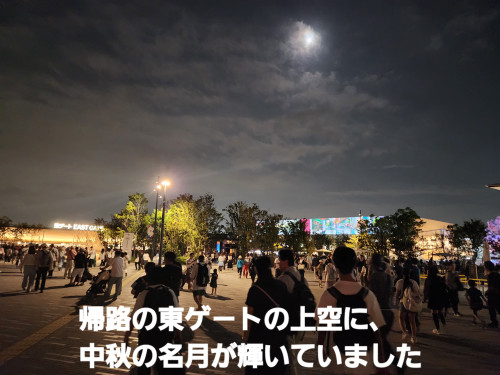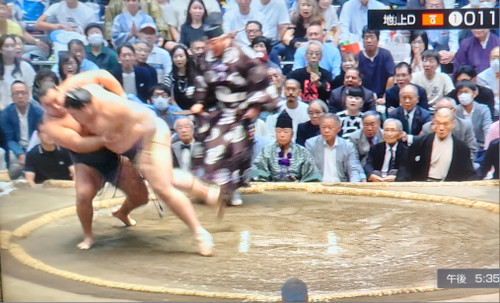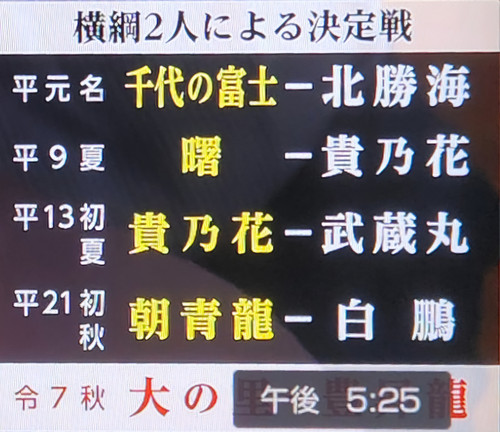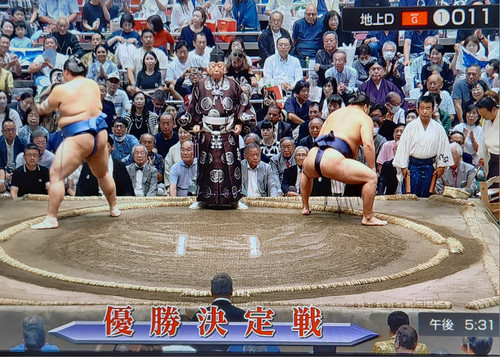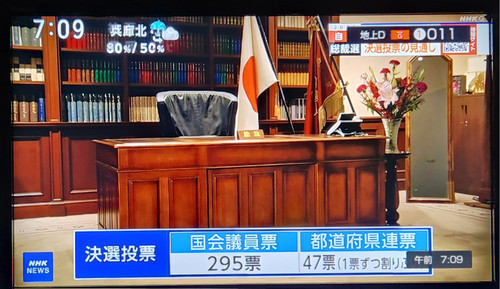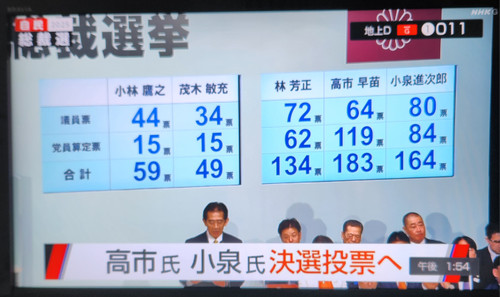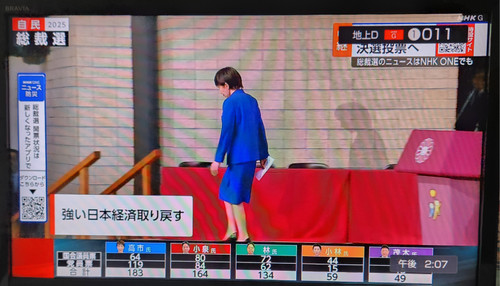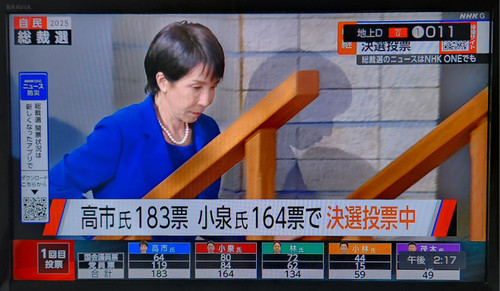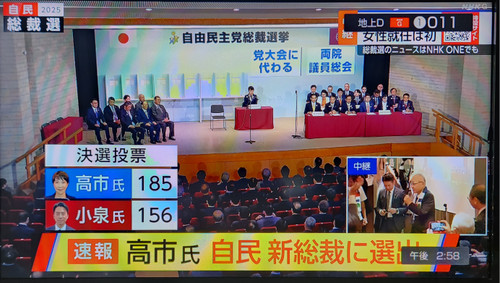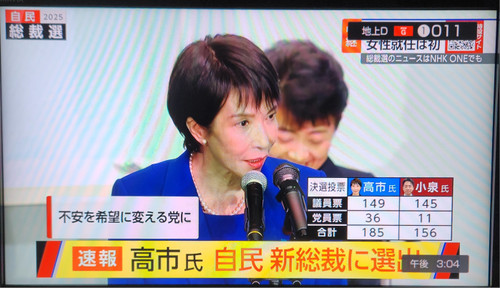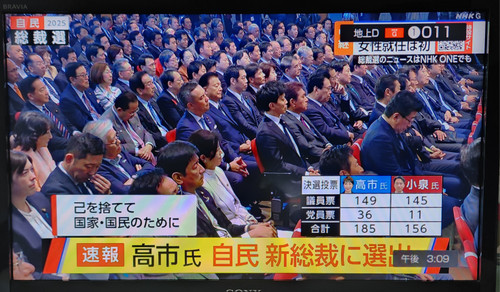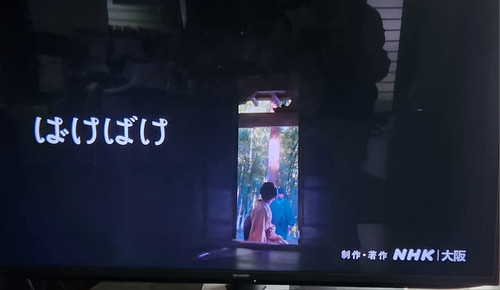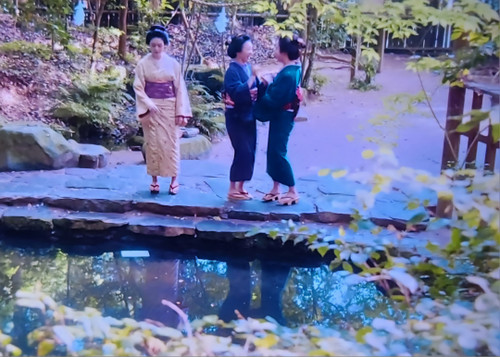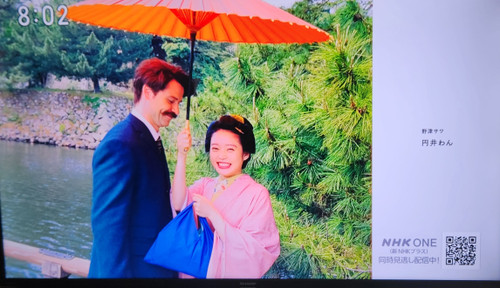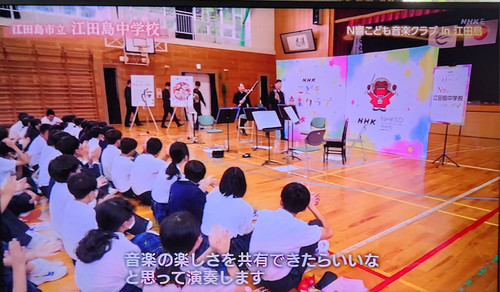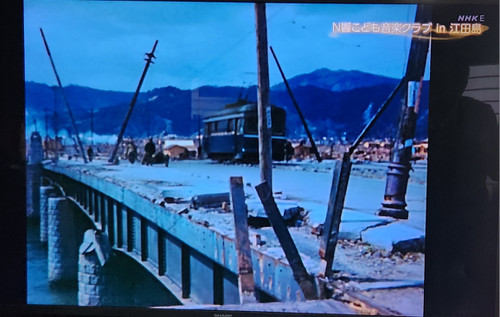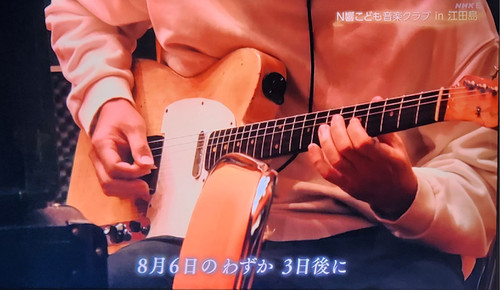365haiku 
2025年10月16日 (木)
2025年10月15日 (水)
2025年10月14日 (火)
2025年10月13日 (月)
俳句365 haiku (280) 《良夜2 Kunpūshi》
万博に愛犬偲ぶ雲良夜
(banpaku-ni aiken-shinobu kumo-ryōya)
(薫風士)
EXPO 2025_
a cloud over full moon
reminded me of our deceased dog
(Lovee)
Click or tap here to see the latest article of “俳句 365 haiku”.
2025年10月12日 (日)
俳句365 haiku (279) 《秋の風2 Bashō》
塚も動け我が泣声は秋の風
(tsuka-mo ugoke waga-naku-koe-wa aki-no-kaze)
(芭蕉)
let the mound move!
my tearful voices
are autumn winds
(Translated by Lovee)
Click or tap here to see the latest article of “俳句 365 haiku”.
俳句365 haiku (278) 《秋の風1 Bashō》
見送りのうしろや寂し秋の風
(miokuri-no ushiro-ya-sabishi aki-no-kaze)
(芭蕉)
seeing you off,
I feel lonely by my back_
autumnal wind
(Translatd by Lovee)
Click or tap here to see the latest article of “俳句 365 haiku”.
2025年10月10日 (金)
俳句365 haiku (277) 《秋潮 Kunpūsh》
秋潮や大屋根リング夕日映ゆ
(akishio-ya ōyaneringu yuhi-hayu)
(薫風士)
the autumnal tide_
the evening sun shines
through the EXPO grand ring
(Lovee)
Click or tap here to see the latest article of “俳句 365 haiku”.
2025年10月 9日 (木)
俳句365 haiku (276) 《寒露 Kunpūsh》
寒露の日ノ-ベル賞に北川氏
(kanro-no-hi nōberushō-ni-kitagawashi)
(薫風士)
Nobel Prize;
awarded to Dr. Kitagawa_
day of Kanro
(Lovee)
(Note)
The term “Kanro” means “one of the twenty-four divisions of the four seasons” (around October 8 in the solar calendar).
Click or tap here to see the latest article of “俳句 365 haiku”.
2025年10月 8日 (水)
俳句365 haiku (275) 《名月 Kunpūsh》
万博やウォーターショーと月を愛で
(banpaku-ya uōtāshō-to tsuki-o-mede)
(薫風士)
EXPO 2025_
enjoying scenes of;
water-show and the full moon
(Lovee)
Click or tap here to see the latest article of “俳句 365 haiku”.
2025年10月 7日 (火)
俳句365 haiku (274) 《良夜1 Kunpūshi》
良夜かな坂口氏らにノーベル賞
(ryōya-kana sakaguchi-shi-ra-ni nōberushō)
(薫風士)
moonlit night_
Nobel Prize
awarded to Mr. Sakaguchi and others
(Lovee)
Click or tap here to see the latest article of “俳句 365 haiku”.
2025年10月 5日 (日)
俳句365 haiku (273) 《秋場所 Kunpūshi》
秋場所や横綱決戦久しぶり
(akibasho-ya yokozuna-kessen hisashiburi)
(薫風士)
championship in autumn_
confrontation by two yokozuna:
in 16 years from the last
(Note)
The term "yokozuna" means "grand sumo-champion".
Click or tap here to see the latest article of “俳句 365 haiku”.
2025年10月 4日 (土)
俳句 365 haiku (272) 《蒲萄 Kunpūshi》
俳句論政治論議に葡萄食み
(haikuron seijirongi-ni budo-hami)
(薫風士)
having grapes;
during my discussions;
on haiku and politics
(Note)
The word "葡萄" (grape) has homonyms such as "武道"(martial arts), "武士道" (chivalry), etc.
The first picture in the following shows the grapes which a friend of haiku gave to us.
The other pictures show partial portions of NHK-TV news which Kunpūshi watched on October 4, 2025.
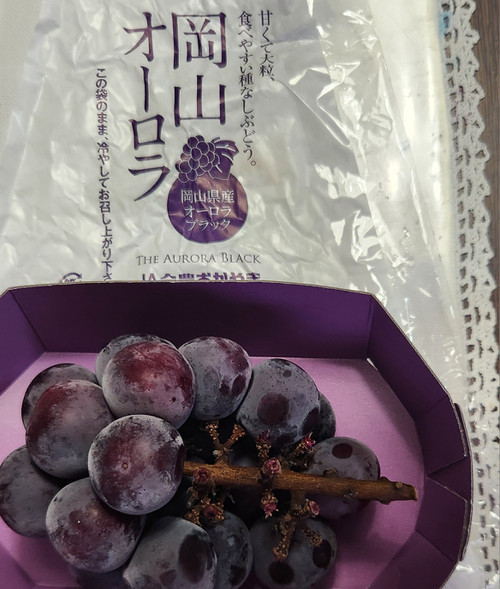 Click or tap here to see the latest article of “俳句 365 haiku”.
Click or tap here to see the latest article of “俳句 365 haiku”.
2025年10月 3日 (金)
俳句365 haiku (271) 《神無月Kunpūshi》
「ばけばけ」の展開如何?神無月
(bakebake-no tenkai-ikan kannazuki)
(薫風士)
Kannazuki_
how will it dvelop?
"Bakebake"
(Note)
The term "Kannazuki" (神無月) means "the tenth month of the lunar calender".
"Bakebake" (ばけばけ) is a title of NHK's week-day morning drama, which started on September 29, 2025.
Click or tap here to see the latest article of “俳句 365 haiku”.
I
2025年10月 1日 (水)
俳句365 haiku (270) 《月Bashō》
月ぞしるべこなたへ入せ旅の宿
(tsuki-zo-shirube konata-e-irase tabi-no-yado)
(芭蕉)
the moon is your guide_
Come here!
for an inn on your journey
(Translated by Lovee)
Click or tap here to see the latest article of “俳句 365 haiku”.
2025年9月28日 (日)
俳句 365 haiku (269) 《露けし Kunpūshi》
露けしや地球の様の変りゆく
(tsuyukeshi-ya chikyū-no-sama-no kawariyuku)
(薫風士)
dewy_
the existing state of earth
always changes
(Lovee)
Click or tap here to see the latest article of “俳句 365 haiku”.
2025年9月27日 (土)
俳句 365 haiku (268) 《原爆忌 Kunpūshi》
音楽に託す祈りや原爆忌
(ongaku-ni takusu-inori-ya genbakuki)
(薫風士)
entrusting prayers to:
musics_
mourning of atomic bomb victims
(Lovee)
These pictures show partial portions of NHK-TV scenes which Kunpūshi recently watched.
Click or tap here to see the latest article of “俳句 365 haiku”.
2025年9月26日 (金)
俳句 365 haiku (267) 《秋雨 1 Kunpūshi》
秋雨やエコー検査に行く朝
(akisame-ya ekōkensa-ni yuku-ashita)
(薫風士)
autumnal rain
soothed me on a morning way
for receiving ultrasound scanning
(Lovee)
This article is put up for the sake of my memory.
Click or tap here to see the latest article of “俳句 365 haiku”.
2025年9月25日 (木)
俳句365 haiku (266) 《秋彼岸 3 Kumpūshi》
マーラーを聴きて思索や秋彼岸
(mārā-o kiki-te shisaku-ya akihigan)
(薫風士)
contemplation;
listening to Mahler’s symphonies_
autumn equinox day
(Lovee)
(Note)
The word “思索” (shisaku), which means “contemplation”, has various homonyms such as “試作” (trial manufacture). “詩作” (poetry composition), “施策” (policy), etc.
These pictures show partial portions of NHK-TV scenes which Kunpūshi saw on video.
Click or tap here to see the latest article of “俳句 365 haiku”.
2025年9月24日 (水)
俳句365 haiku (265) 《秋彼岸 2 Kumpūshi》
秋彼岸マーラーの曲満喫す
(akihigan mārā-no-kyoku mankitsusu)
(薫風士)
autumn equinox day_
fully satisfied by
Mahler’s symphonies
(Lovee)
These pictures show partial portions of NHK-TV scenes which Kunpūshi watched through video.
Click or tap here to see the latest article of “俳句 365 haiku"
2025年9月23日 (火)
俳句365 haiku (264) 《秋彼岸 1 Kumpūshi》
秋彼岸世界平和の悲願句に
(akihigan sekaiheiwa-no higan-ku-ni)
(薫風士)
chanting haiku of
long-held wish for world peace_
autumn equinox
(Lovee)
(Note)
This haiku is a kind of pun for making haiku-composition interesting by means of homonyms.
You may know that the word “彼岸” (higan), which means "equinox"', is a homonym of “悲願” (long-felt wish).
Click or tap here to see the latest article of “俳句 365 haiku”.
